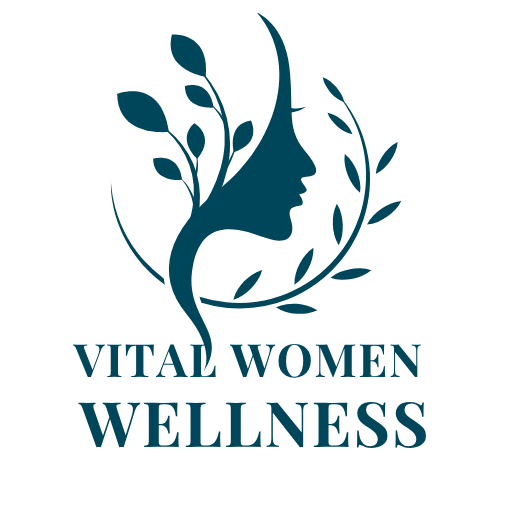
1. Prioritize Sleep Hygiene
Sleep is the cornerstone of good health, yet it’s often the first thing we sacrifice in our busy lives. For women, quality sleep is particularly crucial because of hormonal fluctuations and an increased risk of sleep disorders.
To improve your sleep hygiene, start by establishing a consistent sleep schedule. Go to bed and wake up at the same time every day, even on weekends.
This helps regulate your body’s internal clock, making it easier to fall asleep and wake up naturally.
Create a relaxing bedtime routine to signal to your body that it’s time to wind down. This might include reading a book, taking a warm bath, or practicing gentle yoga stretches.
Avoid screens for at least an hour before bed, as the blue light emitted can disrupt your natural sleep-wake cycle.
Optimize your sleep environment by investing in a comfortable mattress and pillows. Use blackout curtains to block out light, and keep your bedroom cool and quiet.
Some women find white noise machines or apps helpful for drowning out disruptive sounds.
If you struggle with insomnia or other sleep issues, don’t hesitate to seek professional help. A sleep specialist can provide personalized strategies to improve your sleep quality.
2. Nourish Your Body with a Balanced Diet
Proper nutrition is essential for women’s health, impacting everything from energy levels to hormonal balance and disease prevention. While there’s no one-size-fits-all approach to nutrition, focusing on whole, nutrient-dense foods is a great starting point.
Incorporate a variety of colorful fruits and vegetables into your diet. These provide essential vitamins, minerals, and antioxidants that support overall health.
Aim for at least five servings per day, and try to include a range of colors to confirm you’re getting a diverse array of nutrients.
Lean proteins are crucial for maintaining muscle mass, supporting hormone production, and keeping you feeling full. Options like fish, poultry, legumes, and tofu are excellent choices.
For vegetarians and vegans, combining plant-based proteins can help confirm you’re getting all essential amino acids.
Healthy fats play a vital role in women’s health. Omega-3 fatty acids, found in fatty fish, flaxseeds, and walnuts, are particularly important.
They support brain function, reduce inflammation, and may help reduce symptoms of PMS and menopause.
Stay hydrated by drinking plenty of water throughout the day. Proper hydration supports digestion, skin health, and cognitive function.
If you struggle to drink plain water, try infusing it with fruits or herbs for added flavor.
Consider incorporating fermented foods like yogurt, kefir, or sauerkraut into your diet. These probiotic-rich foods support gut health, which is increasingly linked to overall wellbeing, including mental health.
3. Engage in Regular Physical Activity
Exercise is a powerful tool for improving both physical and mental health. For women, regular physical activity can help maintain a healthy weight, reduce the risk of chronic diseases, and reduce symptoms associated with menstruation and menopause.
Aim for at least 150 minutes of moderate-intensity aerobic activity or 75 minutes of vigorous-intensity aerobic activity per week. This can include activities like brisk walking, jogging, cycling, or swimming.
Find activities you enjoy to increase the likelihood of sticking with your exercise routine.
Incorporate strength training exercises at least twice a week. This helps build and maintain muscle mass, which is particularly important as women age and naturally lose muscle.
Strength training also supports bone health, reducing the risk of osteoporosis.
Don’t forget about flexibility and balance exercises. Yoga and Pilates are excellent options that combine strength, flexibility, and mindfulness.
These practices can also help reduce stress and improve overall body awareness.
Pelvic floor exercises, or Kegels, are particularly important for women’s health. These exercises strengthen the muscles that support the bladder, uterus, and other pelvic organs, helping prevent issues like incontinence and pelvic organ prolapse.
Remember, consistency is key when it comes to exercise. Start with small, achievable goals and gradually increase the duration and intensity of your workouts.
Listen to your body and adjust your routine as needed, especially during different phases of your menstrual cycle or life stages like pregnancy and menopause.
4. Prioritize Mental Health
Mental health is an integral part of overall wellbeing, yet it’s often overlooked. Women are more likely than men to experience certain mental health conditions, such as depression and anxiety, making it crucial to prioritize mental wellness.
Practice mindfulness and meditation to reduce stress and improve emotional regulation. Even just a few minutes of mindfulness practice each day can make a significant difference.
There are many apps and online resources available to guide you through meditation exercises.
If you’re struggling with your mental health, seeking professional help can provide valuable tools for managing stress, anxiety, and other mental health concerns. Remember, seeking help is a sign of strength, not weakness.
Develop healthy coping mechanisms for stress. This might include journaling, practicing deep breathing exercises, or engaging in creative activities.
Find what works best for you and make it a regular part of your routine.
Cultivate a strong support network of friends and family. Social connections are crucial for mental wellbeing.
Make time for meaningful interactions, even if it’s just a quick phone call or coffee date with a friend.
Set boundaries to protect your emotional wellbeing. Learn to say no to commitments that don’t align with your values or that stretch you too thin. Prioritize activities that bring you joy and fulfillment.
5. Stay on Top of Preventive Healthcare
Regular check-ups and screenings are essential for maintaining good health and catching potential issues early. As a woman, there are several key areas to focus on when it comes to preventive healthcare.
Schedule annual well-woman visits with your healthcare provider. These check-ups typically include a physical exam, Pap smear (as recommended), breast exam, and discussions about your overall health and any concerns you may have.
Perform monthly breast self-exams to familiarize yourself with your breast tissue and detect any changes early. If you notice any lumps, changes in skin texture, or nipple discharge, talk to your healthcare provider promptly.
Stay up-to-date on recommended vaccinations, including the annual flu shot and the HPV vaccine (if eligible). Discuss your vaccination history with your healthcare provider to confirm you’re fully protected.
Be aware of your family health history, particularly when it comes to conditions like breast cancer, ovarian cancer, and heart disease. Share this information with your healthcare provider, as it may influence screening recommendations.
Don’t ignore unusual symptoms or changes in your body. Trust your instincts and seek medical advice if something doesn’t feel right.
Early detection and treatment can make a significant difference in many health conditions.
Consider bone density screenings, especially as you approach menopause. Osteoporosis is more common in women, and early detection can help prevent fractures and maintain bone health.
See my post on monitoring your health at home
6. Nurture Healthy Relationships
Strong, positive relationships are crucial for overall wellbeing. They provide emotional support, reduce stress, and contribute to a sense of belonging and purpose.
Cultivate strong social connections by making time for friends and family. Regular social interactions, even if they’re virtual, can significantly impact your mental and emotional health.
Communicate openly and honestly with your partner. Healthy relationships are built on trust, respect, and effective communication.
Express your needs and feelings, and be willing to listen to your partner’s perspective as well.
Set and maintain healthy boundaries in all your relationships. This includes personal, professional, and family relationships.
Clear boundaries help prevent resentment and burnout, allowing you to show up fully in your relationships.
Seek support when facing relationship challenges. This might involve talking to a trusted friend, seeking couples counseling, or working with a relationship coach.
Remember, all relationships need effort and occasional maintenance.
Practice self-love and self-compassion. A healthy relationship with yourself is the foundation for healthy relationships with others.
Treat yourself with kindness and respect, and don’t be afraid to prioritize your own needs and wellbeing.
7. Invest in Financial Wellness
Financial stress can have a significant impact on overall wellbeing. Taking control of your finances can provide a sense of security and freedom.
Educate yourself on personal finance. Read books, attend workshops, or take online courses to improve your financial literacy.
Understanding concepts like budgeting, investing, and debt management is crucial for financial wellbeing.
Create and stick to a budget. Track your income and expenses to get a clear picture of your financial situation.
Look for areas where you can cut back on spending and redirect those funds towards savings or debt repayment.
Save for both short-term and long-term goals. Build an emergency fund to cover unexpected expenses, and start saving for retirement as early as possible.
Even small, regular contributions can add up significantly over time.
Consider seeking professional financial advice. A financial advisor can help you create a personalized plan to achieve your financial goals, whether that’s buying a home, starting a business, or planning for retirement.
Plan for unexpected expenses and life changes. This might include purchasing appropriate insurance coverage, creating a will, or setting up a power of attorney.
These steps can provide peace of mind and financial protection for you and your loved ones.
8. Embrace Work-Life Balance
Achieving a healthy work-life balance is crucial for overall wellbeing, yet it can be particularly challenging for women who often juggle multiple roles and responsibilities.
Set clear boundaries between work and personal life. If possible, establish specific work hours and stick to them.
Avoid checking work emails or taking work calls outside of these hours.
Practice effective time management techniques. Use tools like calendars, to-do lists, or productivity apps to help you prioritize tasks and manage your time more efficiently.
This can help reduce stress and create more time for personal activities.
Learn to delegate and ask for help when needed. Whether at work or at home, you don’t have to do everything yourself. Sharing responsibilities can reduce your workload and stress levels.
Take regular breaks throughout the day and use your vacation time. Stepping away from work, even for short periods, can help you recharge and return with increased focus and productivity.
Pursue hobbies and interests outside of work. Engaging in activities you enjoy can provide a sense of fulfillment and help you maintain a sense of identity beyond your professional role.
9. Focus on Hormonal Health
Hormonal balance is crucial for women’s health and wellbeing, influencing everything from mood and energy levels to reproductive health and metabolism.
Track your menstrual cycle and associated symptoms. This can help you understand your body’s patterns and identify any potential issues.
There are many apps available that make cycle tracking easy and convenient.
Consider incorporating hormone-balancing foods into your diet. These might include foods rich in omega-3 fatty acids, fiber, and phytoestrogens.
Some women find that certain herbs, like chasteberry or maca root, help support hormonal balance.
Manage stress to support hormonal health. Chronic stress can disrupt hormone production and balance.
Incorporate stress-reduction techniques like meditation, yoga, or deep breathing exercises into your daily routine.
Discuss hormonal concerns with your healthcare provider. If you’re experiencing symptoms like irregular periods, severe PMS, or signs of perimenopause or menopause, don’t hesitate to seek medical advice.
There are many treatment options available to help manage hormonal imbalances.
Be aware of perimenopause and menopause symptoms. These life stages can bring significant hormonal changes.
Educate yourself about what to expect and talk about management strategies with your healthcare provider.
10. Cultivate Personal Growth and Empowerment
Personal growth and empowerment are ongoing processes that contribute significantly to overall wellbeing and life satisfaction.
Set personal and professional goals. Having clear objectives can provide direction and motivation.
Break larger goals into smaller, achievable steps to maintain momentum and track your progress.
Pursue lifelong learning opportunities. Whether it’s taking a class, learning a new skill, or reading widely, continuous learning keeps your mind active and engaged. It can also open up new opportunities and perspectives.
Practice self-advocacy in healthcare and workplace settings. Don’t be afraid to speak up for your needs and rights.
This might involve asking for a raise, seeking a second medical opinion, or addressing workplace inequalities.
Challenge societal expectations and stereotypes. Question assumptions about what women ‘should’ do or be.
Make choices that align with your values and aspirations, not societal norms.
Embrace your unique strengths and abilities. Recognize and celebrate what makes you unique.
Building self-confidence and self-acceptance is a powerful form of personal empowerment.
Frequently Asked Questions
How can I improve my sleep quality as a woman?
Establishing a consistent sleep schedule, creating a relaxing bedtime routine, and optimizing your sleep environment can significantly improve sleep quality. If issues persist, consult a sleep specialist for personalized advice.
What are some essential nutrients for women’s health?
Key nutrients for women include iron, calcium, vitamin D, folate, and omega-3 fatty acids. A balanced diet rich in fruits, vegetables, lean proteins, and healthy fats can help confirm adequate intake of these nutrients.
How much exercise do women need for optimal health?
The general recommendation is at least 150 minutes of moderate-intensity aerobic activity or 75 minutes of vigorous-intensity aerobic activity per week, along with strength training exercises at least twice a week.
What are some effective stress management techniques for women?
Mindfulness meditation, regular exercise, deep breathing exercises, and maintaining strong social connections are all effective stress management techniques. Finding what works best for you is key.
How often should women have health check-ups?
Most women should have an annual well-woman visit, but the frequency of specific screenings may vary based on age and person risk factors. Consult with your healthcare provider to determine the best schedule for you.
What are some signs of hormonal imbalance in women?
Common signs include irregular periods, severe PMS symptoms, unexplained weight gain or loss, mood swings, fatigue, and changes in skin or hair. If you’re experiencing these symptoms, talk to your healthcare provider.
How can women improve their financial wellness?
Educating yourself on personal finance, creating and sticking to a budget, saving for both short-term and long-term goals, and seeking professional financial advice when needed can all contribute to improved financial wellness.
What are some strategies for achieving work-life balance as a woman?
Setting clear boundaries between work and personal life, practicing effective time management, learning to delegate, and making time for hobbies and self-care are all important strategies for achieving work-life balance.
How can women support their mental health?
Regular exercise, maintaining social connections, practicing mindfulness or meditation, and seeking professional help when needed are all effective ways to support mental health.
What are some ways women can empower themselves?
Setting and pursuing personal and professional goals, engaging in lifelong learning, practicing self-advocacy, challenging societal expectations, and embracing your unique strengths are all powerful ways to cultivate personal empowerment.
Key Takeaways:
- Prioritize sleep hygiene for better overall health
- Nourish your body with a balanced, nutrient-rich diet
- Engage in regular physical activity, including strength training and flexibility exercises
- Prioritize mental health through mindfulness, therapy, and stress management
- Stay on top of preventive healthcare with regular check-ups and screenings
- Nurture healthy relationships, including self-love and clear boundaries
- Invest in financial wellness through education and planning
- Embrace work-life balance by setting boundaries and managing time effectively
- Focus on hormonal health by tracking cycles and addressing imbalances
- Cultivate personal growth and empowerment through goal-setting and lifelong learning
Disclaimer
The information contained in this post is for general information purposes only. The information is provided by Women’s Wellness: 10 Essential Tips for a Healthier, Happier You and while we endeavor to keep the information up to date and correct, we make no representations or warranties of any kind, express or implied, about the completeness, accuracy, reliability, suitability or availability with respect to the website or the information, products, services, or related graphics contained on the post for any purpose.

